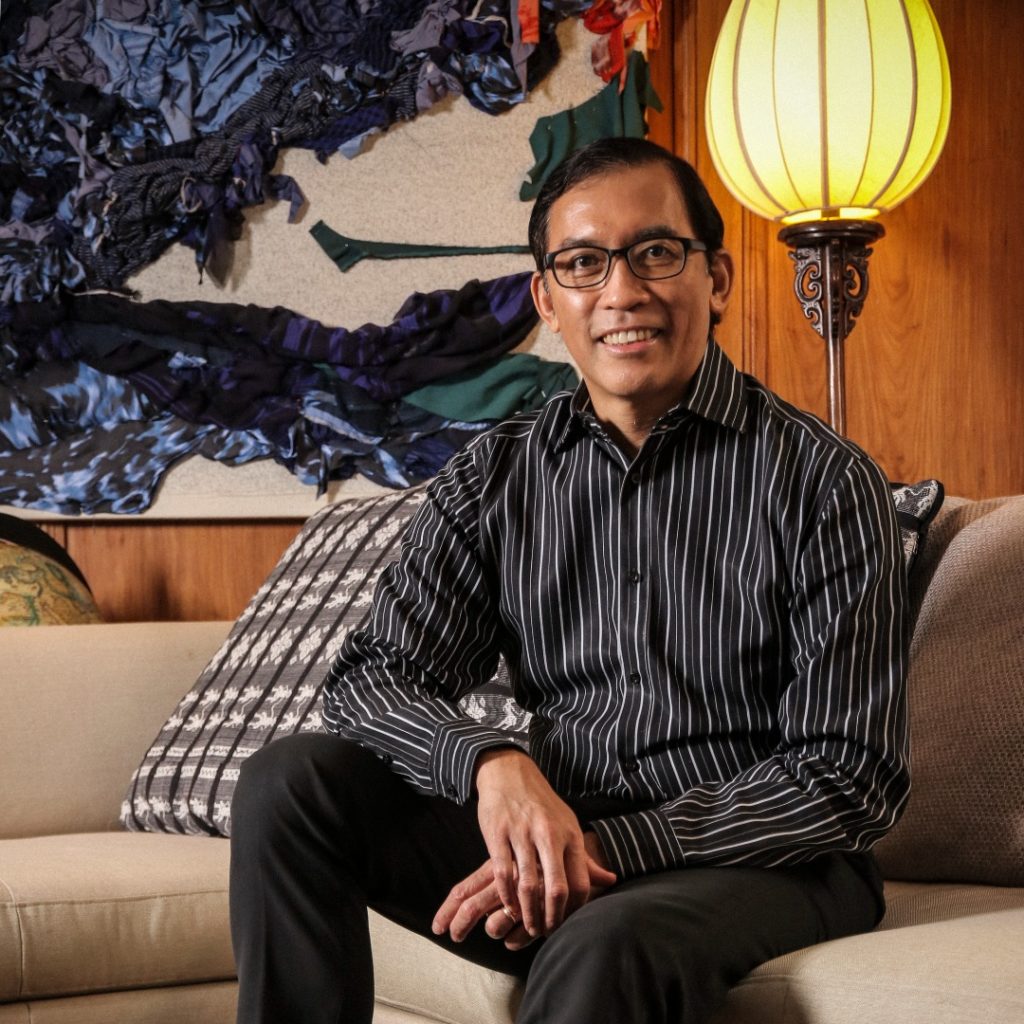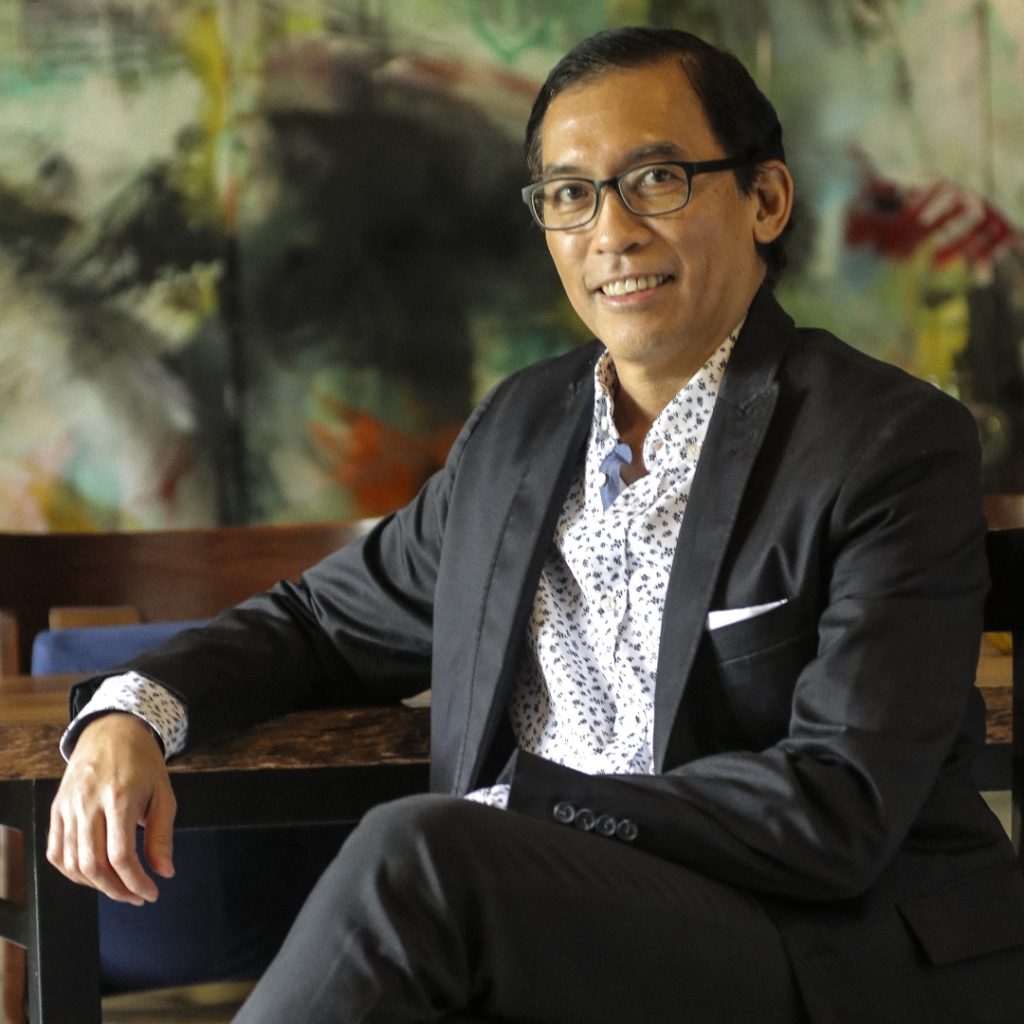Amidst the global pandemic, digital banking apps like ING are proving that you can do more from the comfort and safety of your home.
As an Economics major, the banking industry is close to my heart, and so it was of great pleasure to have been allowed to personally interview Mr. Hans Sicat of the Dutch multinational ING Bank. We tackled critical issues in the banking and financial industry, sectors important to discuss, especially in these unprecedented times.
Like many industries across the globe, banking took a hard hit at the onset of COVID-19 lockdowns. “We had perhaps the most unusual situation where both demand and supply literally just came to a screeching halt,” says Hans Sicat, the Philippine country manager of ING. “We’ve never had that problem before,” he adds.

Balancing Economic Movement
While we are in a pandemic-stricken economy, Sicat is leading ING through twists and turns to overcome this economic recession. A trained mathematician and economist, he finished his coursework for his Ph.D. Economics Program at the University of Pennsylvania was conferred an Honorary Ph.D. in Business Administration by the Western University in Thailand and now carries an illustrious career in the global capital market spanning three decades.
Through his expertise and experience, he underscores the significance of keeping signs of economic activity. “I would say that the big institutions are doing their transactions.” When you look at the last two months alone, according to Sicat, large conglomerates—”including the government, by the way,” he adds—have raised around six billion in both dollars and pesos.
Beyond the movements of conglomerates, we have witnessed the mass extinction of small and medium enterprises mostly due to the lack of consumers stuck in lockdown. Thus, while Sicat affirms the need to reopen the economy, he claims it remains complicated. “We’re at a bit of a disadvantage as an emerging market with a not-as-developed healthcare system.” The way through this medium-term problem, he observes, is to balance economic activity in a way where the health of people is the top priority.
A Healthcare Crisis
Taking from his observation of prioritizing health, Sicat points out the healthcare industry requires the most help. It’s not just the hardware, but the software that needs the most help; nurses and doctors.
The cause of the economic slowdown at present isn’t a financial one as much as it is a health crisis “In a sense, the financial institutions are reacting to the health crisis as opposed to creating a global crisis on its own,” Sicat notes.
Mitigating the Impact
If the finance industry is responding to the urgent concerns in health, then how should businesses, both big and small, survive? “Regulations, globally and locally, have required banks [and] financial institutions [to] have a higher capital base,” Sicat explains. These regulations are a result of global financial institutions—including the Bangko Sentral— becoming a lot more aware of trends. “The monitoring systems are quite honestly a little bit better than what we saw during the last financial crisis,” Sicat adds.”For many of these banks, they’ve set aside extra money or capital to say that if indeed our portfolio companies start defaulting, [they’ll be able to] write it off.”
These moves follow trends from other financial centers like New York where financial institutions have increased capital to withstand increased defaults. “In fact, the Bangko Sentral was implementing a lot of higher requirements over these 10 years,” Sicat says. “I think that conservative stance, when we look back at history and when we look at this pandemic situation, would probably have given the local banking industry enough of a buffer.”

New Age of Banking
The pandemic, with its tremendous impact, has shown the benefits of moving to the digital space. ING is a great model for this—having created a digital retail bank. Although there is only about five percent of digital transactions during the pandemic, this will only continue to increase, according to Sicat. “What’s being proven now is that you can do your regular banking through a digital channel and your mobile phone,” he says. “I think people will realize you don’t have to physically go to [a bank] to deposit a check.” Online banking has proven convenient in transactions, including buying insurance, stocks and bonds, mutual funds, and more. Sicat and his team have pulled off building a digital bank in only nine months. “Hopefully by the end of this year, you’ll find more additions to the ING app,” he says.
In the Philippines, digital banking remains to have a low penetration rate. “I don’t know the exact percentage, but I’m pretty sure it’s in the single digits,” Sicat says, noting that when you look at the statistics of the Bangko Sentral, only one-fifth of the population have savings or checking accounts in general—what more digital bank accounts.
Nevertheless, he sees an impending behavioral change. “When you hear the stories of ease of use and access, [people] tend to give it a try,” he says. Both Sicat and ING are confident it will become apparent that you can do so many things and become self-sufficient without having to go to a brick and mortar bank: “In fact, you probably at some point would say, ‘Why do I even need to have cash in my wallet?’”
To get more people to do online banking, ING is starting with a target market of people with a smartphone, to those interested in developing a culture of saving. This may seem intimidating for some, but it’s important to have liquid assets. Sicat says that the first thing to consider—although he is careful to note this is not direct investment advice—is your risk tolerance. “Are you going to be tolerant of losses or volatility? Do you need the money in two months?” he asks, adding, “Maybe it’s not the time to invest in paintings or real estate because maybe you won’t be able to monetize.” However, Sicat says, “If you can withstand some volatility or don’t need the money upfront, that’s when looking at less liquid investments makes sense.” He says that some people opt to invest their cash into government bonds because it’s relatively safe. The same thing goes for mutual funds or other funds like exchange rated funds.
What Truly Matters
All this, of course, should be done in the service of living a more meaningful and enjoyable life. Sicat enjoys spending time with his family, working out, and growing as an individual by taking insightful online courses from MIT and Harvard. Such a philosophy also extends into his work: “A meaningful life [also] means that I’m involved in something that helps people.” Being in finance, he hopes to help individuals, companies, and even policymakers by being “the oil that makes the gears go round in the economy.” Of course, corporate social responsibility is significant as well. “These are important in ensuring that those who are less privileged have access to education and access to some of the opportunities that some of us have.”





